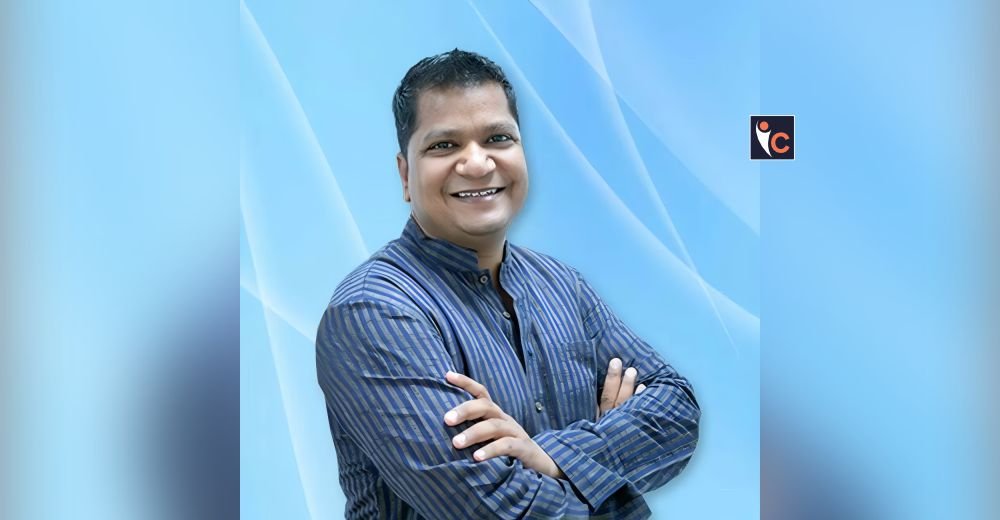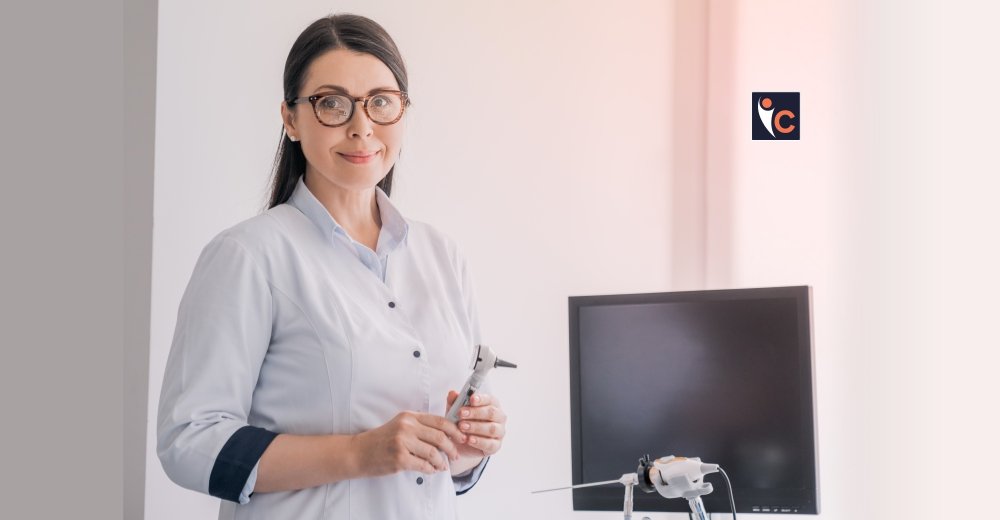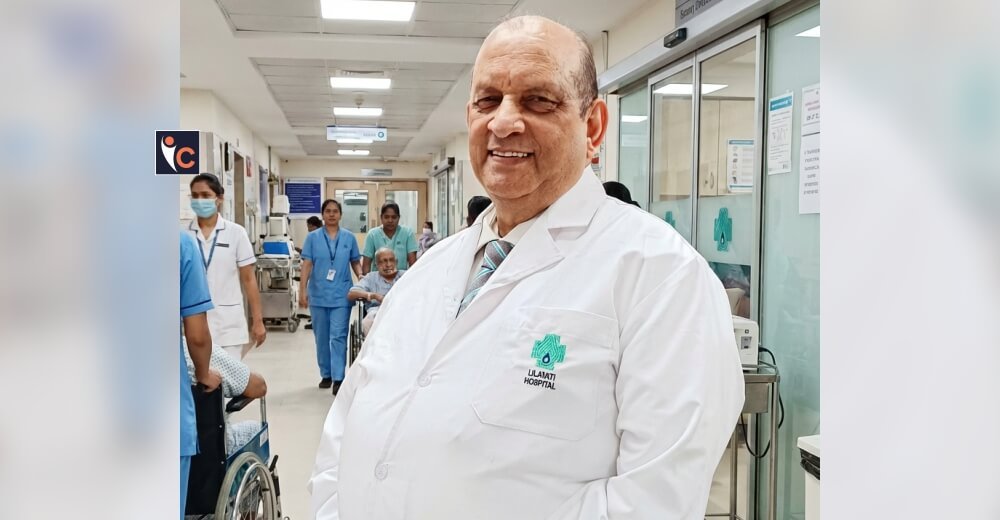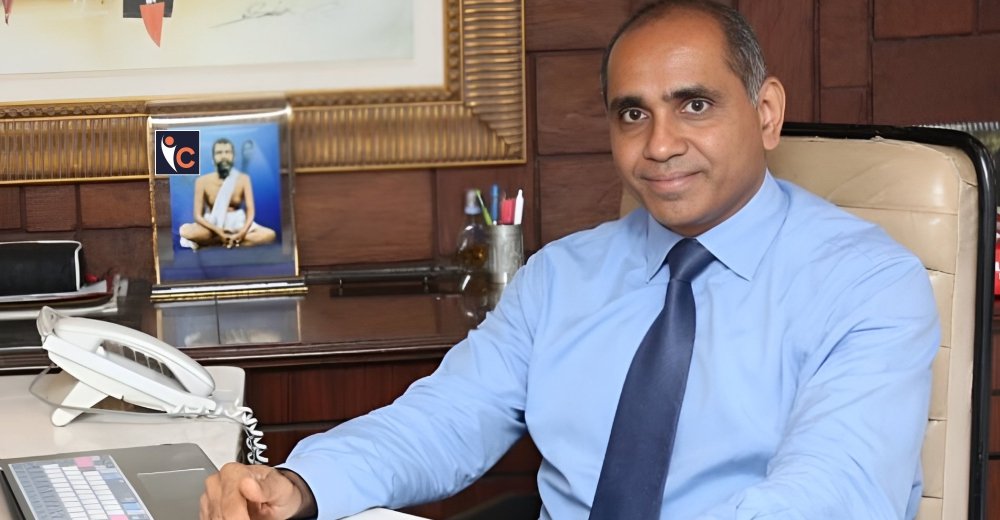While medicine and technology advance rapidly in India, the heart of healthcare lies in those who lead with purpose. Leadership here is measured not by metrics alone, but by the courage, empathy, and resilience shown in moments that truly matter to patients.
This is where Vivek Sharma, Founder and Director of Uhapo Health Services (P) Ltd, stands apart. Healthcare became Vivek’s path not by choice, but through life’s challenges. As a marketer and IIM Calcutta alumnus, he was on a regular corporate track until a personal tragedy changed everything. He decided to use that grief to create hope for others.
From that decision came Uhapo, which started as a small idea and has grown into a caring community for cancer patients and their families. What makes Uhapo unique isn’t just the services it offers, but the human connections at its heart. Survivors help guide patients, families support each other, and no one has to face cancer alone.
For Vivek, being a leader is not about power or titles. It’s about listening, helping others, and doing something bigger than himself. Uhapo has shaped him as much as he has shaped it. His work shows that even in hard times, kindness and purpose can make a difference.
Let’s delve into the interview details below!
Briefly explain your professional background and experience. What inspired you to pursue a career in healthcare?
I am an alumnus of IIM Calcutta, a marketer by training, and today I wear many hats—social entrepreneur, philanthropist, author, and podcaster. Most of these roles came to me, not by design, but by life’s circumstances.
I grew up in a small town, married the love of my life, and eventually settled in Mumbai—the city of dreams. By 2014, life seemed picture perfect: we had a home, a car, and above all, I was a proud father to our bright and bubbly son, Amogh. But in September that year, everything changed. We lost Amogh when he was just five years old. Overnight, the meaning of success, dreams, and material comforts disappeared. My wife and I slipped into depression and even attempted to end our lives.
What pulled us back was the decision to give our grief a purpose. We began giving back to society as a way of staying alive. I quit my corporate career abruptly, started an advertising agency to sustain our livelihood, and along with my wife Sweta and an IIM Calcutta classmate, co-founded the Mickey Amogh Foundation—named after our son—to align ourselves with a new purpose of life.
Our early initiatives included blood donation camps for children with thalassemia, a matrimony platform for patients and survivors, a wig donation program for women with cancer, my book God is Not Fair?, and a podcast by the same name which reached over 1.5 million listeners and gave hope to thousands of young people struggling with suicidal thoughts.
From there, our journey expanded into healthcare. We founded Uhapo Health Services, a community dedicated to people affected by cancer. At Uhapo, we support patients and caregivers with navigation, access to treatment, support groups, and advocacy. Today, we help more than 3,000 patients every year—guiding them not only through medical needs but also emotional, social, financial, and rehabilitational challenges.
What began as a story of loss has become a journey of resilience and purpose—transforming personal tragedy into a mission to give hope and dignity to others.
Tell us something about your organization and highlight its mission in the industry.
Uhapo began in 2018 as a teleconsultation platform with the aim of keeping cancer patients connected with their treating physicians. At the time, most patients had to travel to metropolitan cities for treatment, but teleconsultation faced significant operational and legal hurdles, as well as social stigma. We tried pivoting our business model, but due to limited capital, that too could not sustain.
What truly shaped Uhapo’s journey was the decision to focus on building a community. We conducted in-depth interviews with over 700 cancer patients and caregivers, mapping their emotional states and unmet needs throughout the treatment journey. This gave us deep insights into how patients feel and what they require at every stage—medical, emotional, social, financial, and rehabilitational.
Today, Uhapo stands as a community run by cancer survivors, for cancer patients and caregivers. We handhold every patient—whether through treatment, rehabilitation, or end-of-life care—ensuring that no one walks this journey alone. At its heart, Uhapo is not just a service, but a movement of patients and survivors supporting one another with dignity and compassion.
Shed some light on your roles and responsibilities in the organization. How has it shaped your leadership skills?
Uhapo is led on the ground by cancer survivors who serve as cancer care coaches, guiding patients with lived experience and empathy. While my co-founder, Umeshnath Sharma, manages the P&L, I focus on strategy, overall operations, and building strong community connections. Many people say I built Uhapo, but in truth, it is Uhapo that has built me into who I am today.
On this journey, I encounter two powerful realities. On one hand, I meet people who know their time is limited, yet they fight with remarkable courage and dignity. On the other, I witness the incredible advancements of science, where patients with several types of cancer are living much longer, some even being completely cured and returning to normal life.
These experiences have taught me two profound life lessons:
To remain grounded, because we don’t truly “own” anything—everything belongs to nature and eventually returns to it, on a day none of us can predict.
To never lose hope. No matter the challenges, we must keep trying—because it’s not the end, until it really is the end.
What are the biggest challenges that you face as a leader in the healthcare industry, and how do you overcome them?
To me, the biggest challenge in healthcare is our own attitude. We often compromise our health in the race to earn money, only to later spend that very money trying to regain the health we could have preserved with much simpler choices.
At Uhapo, our focus remains on cancer awareness, early screening, and reintegrating survivors into the mainstream of society. It is not an easy journey—resource constraints and deeply rooted societal attitudes make it a constant uphill task. But these are the very challenges that drive our mission forward.
How do you ensure that your team is motivated and engaged in their work, and what strategies do you use to promote teamwork and collaboration?
We believe in truly empowering every member of our team. Each one understands their role, their value to society, and the impact they create. We make it a point to acknowledge and celebrate their contributions regularly.
What are the most important qualities a healthcare leader must possess?
Empathy.
What is your approach to innovation and technology in healthcare, and how do you ensure that your organization stays up-to-date with the latest advancements?
We are exploring multiple collaborations, including partnerships with NBFCs to finance cancer treatments, as well as leveraging Internet of Things (IoT) technologies that, in the near future, could help predict potential side effects of treatment for cancer patients.
What is your vision for the future of healthcare, and how do you plan to contribute to this vision?
We may be a small cog in the larger wheel, but our aspiration is to contribute meaningfully to cancer care policy and its implementation for patients.
What advice would you give to someone who is interested in pursuing a career in healthcare leadership?
Healthcare is a tough domain because it deals directly with human lives. To make a real impact, one must lead with integrity, stay closely connected to the people you work with and for, and remain committed to the cause by always placing people before profit.





